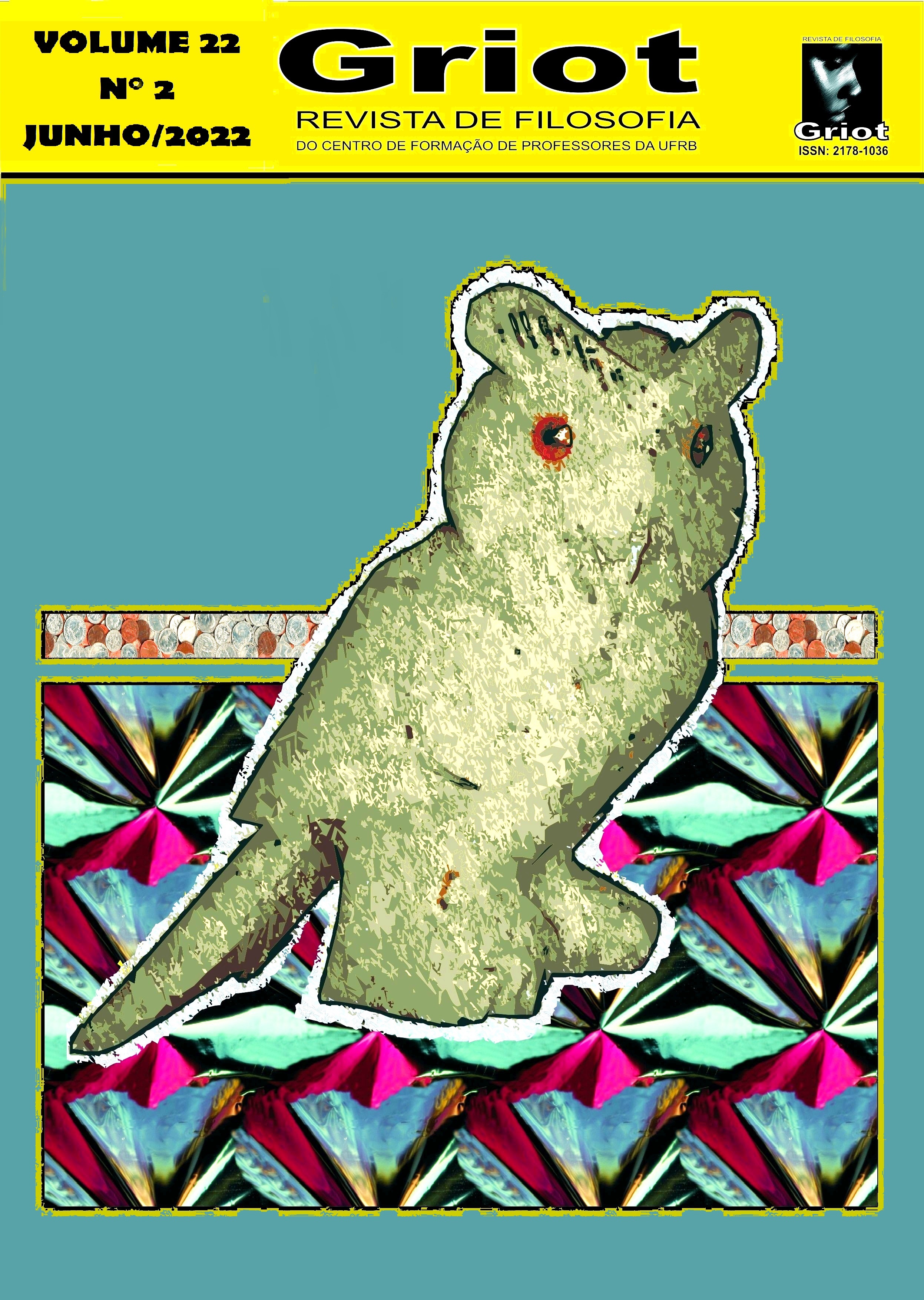Notes on the concept of pleasure in Epicurus
DOI:
https://doi.org/10.31977/grirfi.v22i2.2803Keywords:
Pleasure; Ethic; Epicurus.Abstract
This article aims to examine the notion of pleasure (hedoné) as a telos of the happy life (makários zén) in Epicurus. Understood as the first good (agathòn prôton) and inherent to the human being, pleasure is presented as the beginning and the ultimate end (archê kai télos) of a happy life. Indeed, it should be noted that it is not the pleasures of the common people (which consist in the immoderate enjoyment of the senses) that Epicurus considers as the telos of a happy life, but the pleasure that is the absence of suffering in body and soul, which is named by Epicurus of katastematic pleasure (hedoné katastematiké) or static/at rest pleasure. In this sense, two concerns guide the present work: i) that of presenting pleasure as a telos of a happy life; ii) to expose the strict meaning that the concept of pleasure assumes in Epicurean philosophy (especially in ethics), paying attention to the distinction between pleasure in movement and pleasure at rest. The present study is based mainly on passages from the epistle to Meneceus, in some Main Maxims and Vatican Sentences, texts in which Epicurus exposes the foundations of his hedonism, as well as in the testimonies of later disciples, such as Tito Lucrécio Caro, Diogenes Laertius and Diogenes de Enoanda.
Downloads
References
ARISTÓTELES. Ética a Nicômaco. São Paulo: Editora Abril Cultural, 1973.
CÍCERO. Oeuvres Complètes de Cicéron. Paris: J. J. Dubochet, Le Chevalier et Comp., Éditeurs, 1848.
DIÓGENES LAÉRCIO. Lives of Eminent Philosophers. Loeb Classical Library 185. Cambridge, MA: Harvard University Press, 1925.
DIÓGENES LAÉRCIO. Vidas e Doutrinas dos Filósofos Ilustres. Brasília: Editora Universidade de Brasília, 2008.
DUVERNOY, Jean François. O Epicurismo e sua tradição antiga. Rio de Janeiro: Zahar, 1993.
EPICURO. Lettres et Maximes. Paris: Presses Universitaires de France, 1987.
EPICURO. Carta a Meneceu. São Paulo: UNESP, 2002.
EPICURO. Máximas Principais. Campinas: Loyola, 2013.
EPICURO. Sentenças Vaticanas. São Paulo: Loyola, 2014.
FORSCHNER, Maximilian. Epicuro – Esclarecimento e serenidade. In: ERLER, Michael; GRAESER, Andreas. Filósofos da Antiguidade – II: Do helenismo até a Antiguidade tardia. São Leopoldo: Unisinos, 2002.
GUAL, Carlos García. Epicuro. Madrid: Alianza Editorial, 2002.
GUAL, Carlos García. El Sábio Camino Hacia La Felicidad. Diógenes de Enoanda Y El Gran Mural Epicúreo. Barcelona: Editorial Planeta, S.A., 2016.
GUYAU, Jean-Marie. La Morale d’Épicure. Paris: Librairie Germer Baillère, 1886.
LLEDÓ, E. El Epicureísmo: una sabiduría del cuerpo, del gozo y de la amistad. Barcelona: Taurus, 1995.
LONG, Anthony Arthur. La Filosofía Helenística. Madrid: Revista de Occidente, 1975.
NIETZSCHE, Friedrich Wilhelm. A gaia ciência. São Paulo: Companhia das Letras, 2001.
NIETZSCHE, Friedrich Wilhelm. A filosofia na idade trágica dos gregos. Lisboa: Edições 70, 2018.
PLATÃO. A República. Lisboa: Fundação Calouste Gulbekian, 2001.
PLUTARCO. Obras Morales Y De Costumbres. Tratados Antiestoicos. Moralia XI. Madrid: Gredos, 2004.
SILVA, Markus Figueira da. Epicuro: sabedoria e jardim. Rio de Janeiro: Relume Dumará, 2003.
SPINELLI, Miguel. Os Caminhos de Epicuro. São Paulo: Loyola, 2009.
SPINELLI, Miguel. Epicuro e as bases do epicurismo. São Paulo: Paulus, 2013.
SPINELLI, Miguel. Helenização e recriação de sentidos: a filosofia na época da expansão do cristianismo – séculos II, III e IV. 2ª e. revisada e ampliada. Caxias do Sul: Educs, 2015.
SPINELLI, Miguel. Ética e política: a edificação do éthos cívico e da paideia grega. São Paulo: Loyola, 2017.
TITO LUCRÉCIO CARO. Da Natureza. São Paulo: Editora Abril Cultural, 1973.
ULLMANN, Reinholdo Aloysio. Epicuro: o filósofo da alegria. Porto Alegre: EdiPUCRS, 2010.
USENER, Hermann. Epicurea. Milano: Bompiani, 2007.
Downloads
Published
How to Cite
Issue
Section
License
Copyright (c) 2022 Marcos Adriano Zmijewski

This work is licensed under a Creative Commons Attribution 4.0 International License.
The authors who publish in Griot: Revista de Filosofia maintain the copyright and grant the magazine the right of first publication, with the work simultaneously licensed under the Creative Commons Attribution 4.0 International License, allowing sharing and adaptation, even for commercial purposes, with due recognition of authorship and initial publication in this journal. Read more...









































































